“A man said no person is educated who knows/only one language, for he cannot distinguish/between his thought and the English version,” Jack Gilbert wrote in “Foraging for Wood on the Mountain.” But it is nearly inescapable for Americans to be monolingual, as our country is isolated by two oceans from most other languages. If we are not lucky enough to be bilingual, the next best recourse for us as poets is to read poetry in translation. A small press like Tavern Books is a wonderful resource for poetry hidden by distance and language that we do not know, poetry worth reading in editions worth keeping. Poetry from other cultures widens our horizons and deepens our understanding of the human condition.
The mission statement on the Tavern Books web site says, “Tavern Books is a 503(c)(3) not-for-profit poetry publisher based in Portland, Oregon. We exist to print, promote, and preserve works of literary vision, to foster a climate of cultural preservation, and to disseminate books in a way that benefits the reading public.” All of Tavern’s Living Library titles are uniform in size and appearance, of high quality, a joy to hold and to read, and kept in print forever. When one visits the Tavern offices on the second floor of Union Station in Portland, the first thing one notices is the shelves holding rows of Tavern titles. All Tavern’s full-length collections are offset print rather than produced through digital short-run printing, e-books, or print-on-demand.
Tavern’s Living Library catalog “of innovative poets ranging from first-time authors and neglected masters to Pulitzer Prize winners and Nobel Laureates” includes collections translated from Greek, German, French, Polish, Spanish, Swedish, Arabic, Slovene, Hebrew, Italian, Welsh, Japanese, and Hungarian. Poets include Yosa Buson, Tomas Transformer, Charles Simic, Rainer Maria Rilke, and William Stafford.
The Wrolstad Contemporary Poetry Series honoring the life and work of Greta Wrolstad (1981 – 2005) publishes works by women poets 40 years of age or younger (see web site for submission details). This editor has read the 2015 selection, Emergency Brake, by Ruth Madievsky, and found the quality of her poetry to be as impressive as the quality of the book production.
The OPA Newsletter recently interviewed Tavern Books publisher and editor Carl Adamshick. Here’s what we found out:
OPA: Why does Tavern Books focus so much on translations? Is it because no other small press does, or are there other considerations?
CA: Many presses focus on works in translation. I think Tavern Books probably publishes—50% of our catalog is translated—for the same reason as other presses and that is because it offers another voice, a bilingual book is a huge window into another culture.
OPA: Why should an OPA member read a book of poetry in translation from another language?
CA: Because they should want to know how others live and feel. Because other than eating a culture’s food, reading a book is the quickest way to understand and empathize with others.
OPA: How much does Tavern’s survival depend on sales and how much on donations? Does Tavern Books receive funding from any government institution? Any private foundation?
CA: It’s roughly a third. Sales. Donations. And Grants. Yes. We receive money from state and national organizations.
OPA: Tavern’s commitment to the beauty and quality of its books is impressive. Is offset printing a great deal more expensive than digital short-run printing? The price of your books, handsome and durable as they are, seems quite reasonable – are they subsidized to keep the price down?
CA: We believe in the book as a physical object in the Tavern office. We do choose to spend a little bit more on printing for a book with a little more substance and beauty.
OPA: Your website states that “Tavern Books publishes six full-length titles a year, roughly a book every six weeks.” That seems like a pretty brisk pace. How many people, aside from those at the printers, does it take to process a manuscript into a book, and how long does it take? Do you always have several books in the pipeline at once, or do you put out one in six weeks and then start on the next one?
CA: Publishing is a juggling act. We work on multiple books at a time—sometimes intensely and other times lightly—but yes we publish a book basically every other month. There is always something to do! We have many helpers and volunteers.
OPA: Have you ever had an edition of a book sell out and needed to do a second printing?
CA: Yes! And it is our pledge to keep things in-print!
OPA: The Wrolstad Contemporary Poetry Series is open to female poets 40 years old and under. What made you decide on these restrictions as to gender and age?
CA: The series is named after Greta Wrolstad. A poet who was in a fatal car crash during her graduate studies. We published a posthumous collection of her work—which is stunning. And in the course of compiling her work we kept talking about young, gifted writers that aren’t given a chance.
OPA: All your submissions to the Wrolstad Series “are read solely by Tavern Book editors.” Are you buried under a truckload of submissions? Tell us something about the process of selecting whom to publish.
CA: Reading the manuscripts is an amazing part of the job. We read them in the office and have many conversations.
We encourage OPA’s female poets under 40 to look into submitting a collection to Tavern. The press is also open to collections in translation. Go to tavernbooks.com for details.
A visit to Tavern’s offices on the second floor of Union Station in Portland is a view into the small press world worth the effort.
